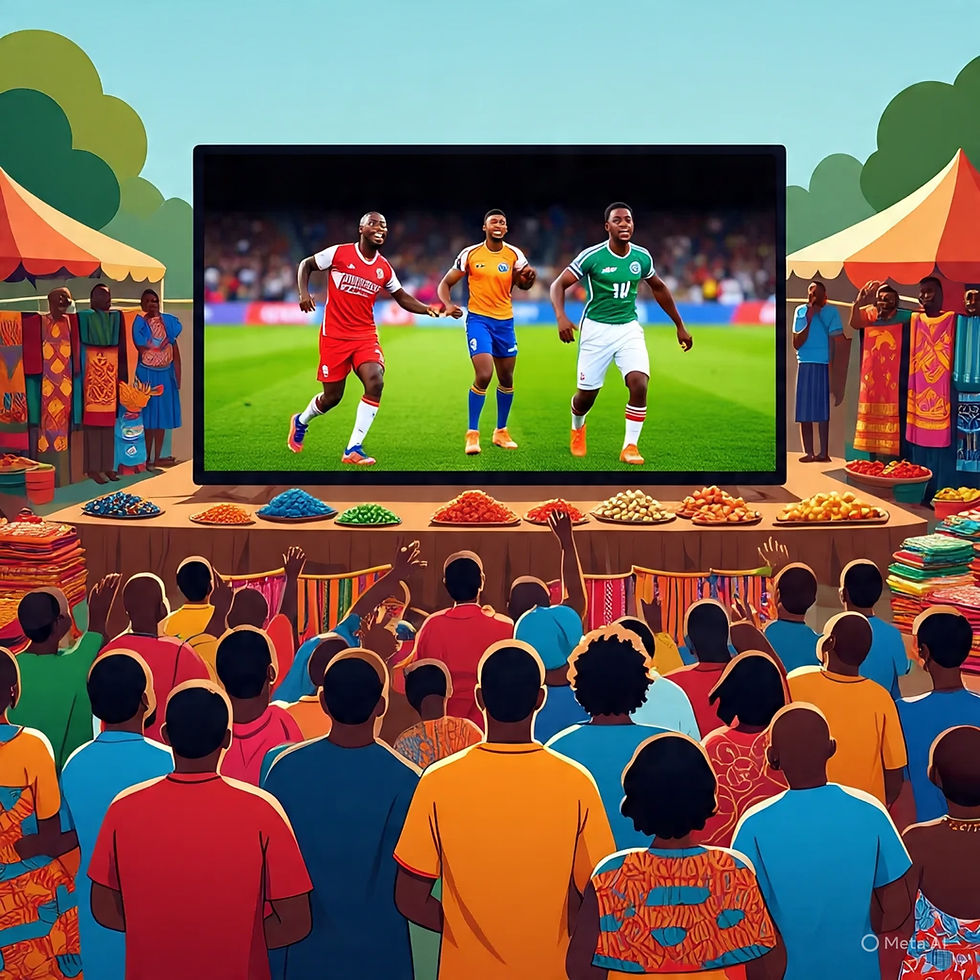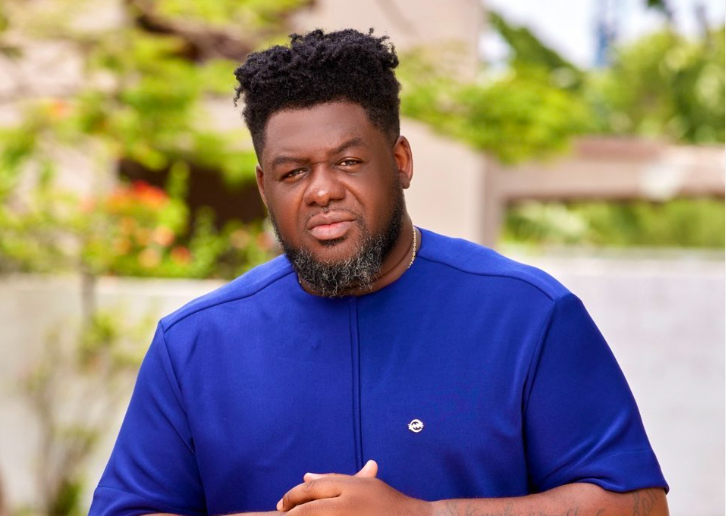Why Some Footballers with Ghanaian Heritage Choose Other Nations
- orpmarketing
- May 26, 2025
- 7 min read

Football is a global game, and for players with dual heritage, choosing which country to represent can be a deeply personal, complex decision. Many talented footballers with Ghanaian parentage or ancestry are eligible to play for the Black Stars, Ghana’s national team, but opt instead for other nations. This blog explores some of these players, the reasons behind their choices, and the broader factors influencing such decisions. From cultural identity to career aspirations, the motivations are as varied as the players themselves.
FIFA Eligibility Rules: A Quick Overview
Before diving into the players, let’s touch on FIFA’s eligibility rules, which shape these decisions. According to FIFA’s statutes, a player can represent a country if they were born there, have a parent or grandparent born there, or have lived in the country for a specified period (typically five years after age 18). Players with multiple nationalities can switch allegiance once, provided they haven’t played in a competitive senior international match for another nation. These rules, often called the “Granny Rule” informally, allow players with Ghanaian roots to choose between Ghana and other countries where they were born, raised, or have familial ties.
Notable Players Who Chose Other Nations
Here’s a look at some prominent footballers with Ghanaian heritage who have opted to represent other countries, based on available information:
Alphonso Davies (Canada)
Background: Born in a Ghanaian refugee camp in Buduburam to Liberian parents who fled civil war, Davies moved to Canada at age five. He was eligible to play for Ghana due to his birth but chose Canada, where he gained citizenship and debuted for the senior team in 2017 at age 16.
Why Canada? Davies has expressed a strong connection to Canada, where he was raised and developed as a footballer. His rapid rise in Canadian youth teams and early citizenship likely solidified his allegiance. The lack of direct ties to Ghana beyond his birthplace may have also played a role.
Marcel Desailly (France)
Background: Born in Accra, Ghana, Desailly moved to France as a child when his mother married a French diplomat. He became a key figure in France’s 1998 World Cup-winning team, famously stating he felt “totally French” and never considered playing for Ghana.
Why France? Desailly’s upbringing in France, immersion in its culture, and access to its superior football infrastructure made France the natural choice. His identity as a Frenchman overshadowed his Ghanaian roots.
Jerome Boateng (Germany)
Background: Born in Berlin to a Ghanaian father, Jerome, alongside his brother Kevin-Prince Boateng (who chose Ghana), had the option to represent Ghana. Jerome excelled in Germany’s youth system and debuted for the senior team in 2009.
Why Germany? Raised in Germany, Jerome’s career developed within its robust football system. The opportunity to play for a football powerhouse like Germany, with a strong chance of winning major tournaments, likely influenced his decision over Ghana, a less consistent international contender.
Danny Welbeck (England)
Background: Born in Manchester to Ghanaian parents, Welbeck’s full name is Daniel Nii Tackie Mensah Welbeck. He debuted for England against Ghana in 2011, facing boos from Ghanaian fans. He has 42 caps and 16 goals for England.
Why England? Welbeck’s entire life and football career were rooted in England. The Premier League’s competitive environment and England’s strong national team setup made it a logical choice. Cultural assimilation and limited personal connection to Ghana likely tipped the scales.
Mario Balotelli (Italy)
Background: Born to Ghanaian parents in Palermo, Italy, Balotelli was adopted by an Italian family at age three. He declined an invitation from Ghana in 2007, waiting for Italy’s call, and debuted for Italy in 2010, scoring 13 goals in 33 appearances.
Why Italy? Balotelli’s adoption and upbringing in Italy shaped his identity. Italy’s football prestige and his desire to represent the country where he grew up outweighed Ghana’s offer, despite early interest from the Black Stars.
Gerald Asamoah (Germany)
Background: Born in Ghana, Asamoah moved to Germany in 1990. He became the first African-born Black player to represent Germany, debuting in 2001 and playing in the 2002 and 2006 World Cups.
Why Germany? Asamoah’s migration to Germany at a young age and integration into its football system made Germany the obvious choice. The opportunity to play in a top-tier football nation likely trumped any pull toward Ghana.
Nigel Quashie (Scotland)
Background: Born in London to a Ghanaian father and English mother, Quashie initially earned caps for England’s U21 and B teams. He later switched to Scotland, debuting in 2004, becoming one of the few Black players to represent them.
Why Scotland? Quashie’s switch was enabled by FIFA’s eligibility rules and his ancestry. Scotland’s interest and his limited prospects of breaking into England’s senior team likely influenced his decision.
Robin Quaison (Sweden)
Background: Born in Stockholm to a Ghanaian father and Swedish mother, Quaison debuted for Sweden in 2013, scoring 12 goals in 39 matches. He was eligible for Ghana but chose Sweden.
Why Sweden? Raised in Sweden, Quaison’s identity and football development were tied to the country. Sweden’s competitive national team and his integration into its culture likely made it the preferred choice.
Others from Recent Posts
A 2022 post on X listed players with Ghanaian descent playing for other nations at the World Cup, including:
Richie Laryea (Canada): Born in Canada to Ghanaian parents.
Jeremy Doku (Belgium): Born in Belgium to Ghanaian parents.
Cody Gakpo, Memphis Depay, Jeremie Frimpong (Netherlands): All have Ghanaian heritage but were born or raised in the Netherlands.
Nico Williams (Spain): Born in Spain to Ghanaian parents.
Yunus Musah (USA): Born in the USA to Ghanaian parents.
Ethan Ampadu (Wales): Eligible through ancestry, raised in England but chose Wales.
Why Don’t They Choose Ghana?
The reasons players with Ghanaian heritage opt for other nations are multifaceted, often blending personal, cultural, and professional considerations. Here are some key factors:
Cultural Identity and UpbringingMany of these players were born or raised outside Ghana, often in countries like England, Germany, or Canada. Their sense of identity aligns more with the nation where they grew up, attended school, and built their lives. For instance, Marcel Desailly’s assertion of feeling “totally French” reflects how upbringing can overshadow ancestral ties. Similarly, players like Balotelli and Welbeck, raised in Italy and England respectively, identify strongly with those cultures.
Football Infrastructure and OpportunitiesCountries like Germany, France, and England boast superior football infrastructure—academies, coaching, and competitive leagues—that nurture talent early. Players developed in these systems often feel loyalty to the nation that shaped their careers. For example, Jerome Boateng benefited from Germany’s youth system, making it a natural choice. Ghana’s football infrastructure, while improving, can’t always compete with the resources of European powerhouses.
Competitive ProspectsPlaying for a football powerhouse like Germany or France offers a higher chance of competing in major tournaments like the World Cup or UEFA Euros. Ghana, despite its proud history (four Africa Cup of Nations titles and strong World Cup showings in 2006 and 2010), is seen as less likely to achieve consistent global success. Players like Diego Costa, who switched from Brazil to Spain, prioritized competitive opportunities.
Career and VisibilityRepresenting a prominent football nation can boost a player’s profile, attracting attention from top clubs and sponsors. For instance, Alphonso Davies’ choice of Canada aligned with his rise in a competitive football market, enhancing his global visibility. Choosing Ghana might limit exposure in some cases, especially for players already embedded in European leagues.
Personal and Family ConnectionsSome players have limited personal ties to Ghana beyond parentage. If they’ve never lived there or visited frequently, the emotional pull to represent Ghana may be weak. Family dynamics also play a role—parents or siblings may influence decisions, as seen with the Boateng brothers, where Jerome chose Germany while Kevin-Prince opted for Ghana.
FIFA Eligibility and TimingFIFA’s rules allow players to switch allegiance before playing competitive senior matches, but the process requires commitment. Players like Quashie, who switched to Scotland after limited England prospects, made pragmatic choices based on opportunity. Ghana’s efforts to recruit dual-nationality players, as noted by the Ghana Football Association in 2022, show progress, but some players are already committed elsewhere by the time outreach occurs.
Societal and Cultural PerceptionsIn some cases, players face societal pressures or stereotypes in their adopted countries, which can influence their choice. A Reddit discussion highlighted that players of immigrant descent may feel like “foreigners” in their birth countries, yet still choose them due to stronger cultural ties or better football prospects. For example, Balotelli’s adoption by an Italian family shaped his identity, despite facing racism in Italy.
Practical ConsiderationsLogistical factors, like the ease of obtaining citizenship or the timing of a national team’s call-up, can sway decisions. Alphonso Davies, for instance, received Canadian citizenship just before his debut, facilitating his choice. Ghana’s recruitment efforts, while proactive, may not always align with a player’s career timeline.
Ghana’s Efforts to Attract Dual-Nationality Players
The Ghana Football Association (GFA) has actively worked to recruit players with Ghanaian heritage, especially ahead of major tournaments like the 2022 World Cup. In July 2022, the GFA announced five new recruits who switched allegiance to Ghana, including players like Inaki Williams, who chose Ghana over Spain. The GFA’s president, Kurt Okraku, has emphasized engaging players and their families to foster a sense of connection. These efforts show Ghana’s commitment to tapping into its diaspora, but challenges remain, including competing with wealthier football nations and overcoming players’ established identities elsewhere.
A Personal Take
It’s fascinating—and sometimes a bit heartbreaking—to see so many talented players with Ghanaian roots donning other nations’ jerseys. Growing up, I remember watching the Black Stars’ thrilling 2010 World Cup run, hoping one day to see all eligible stars unite under Ghana’s flag. But you can’t blame someone like Davies or Desailly for choosing the country that shaped them. It’s like picking between your childhood home and your ancestral village—both hold meaning, but one feels more like you. Still, Ghana’s passion for football and its growing efforts to connect with the diaspora give hope that more players might choose the Black Stars in the future.
Conclusion
Players with Ghanaian heritage face a complex web of choices when picking a national team. Cultural identity, football infrastructure, competitive prospects, and personal ties all play a role. While Ghana has lost talents like Davies, Desailly, Boateng, and Welbeck to other nations, the GFA’s outreach shows promise in attracting future stars. The global nature of football, coupled with FIFA’s flexible rules, means these decisions will always spark debate. For now, Ghanaian fans can celebrate the Black Stars’ legacy while cheering for a future where more diaspora players join the fold.




Comments